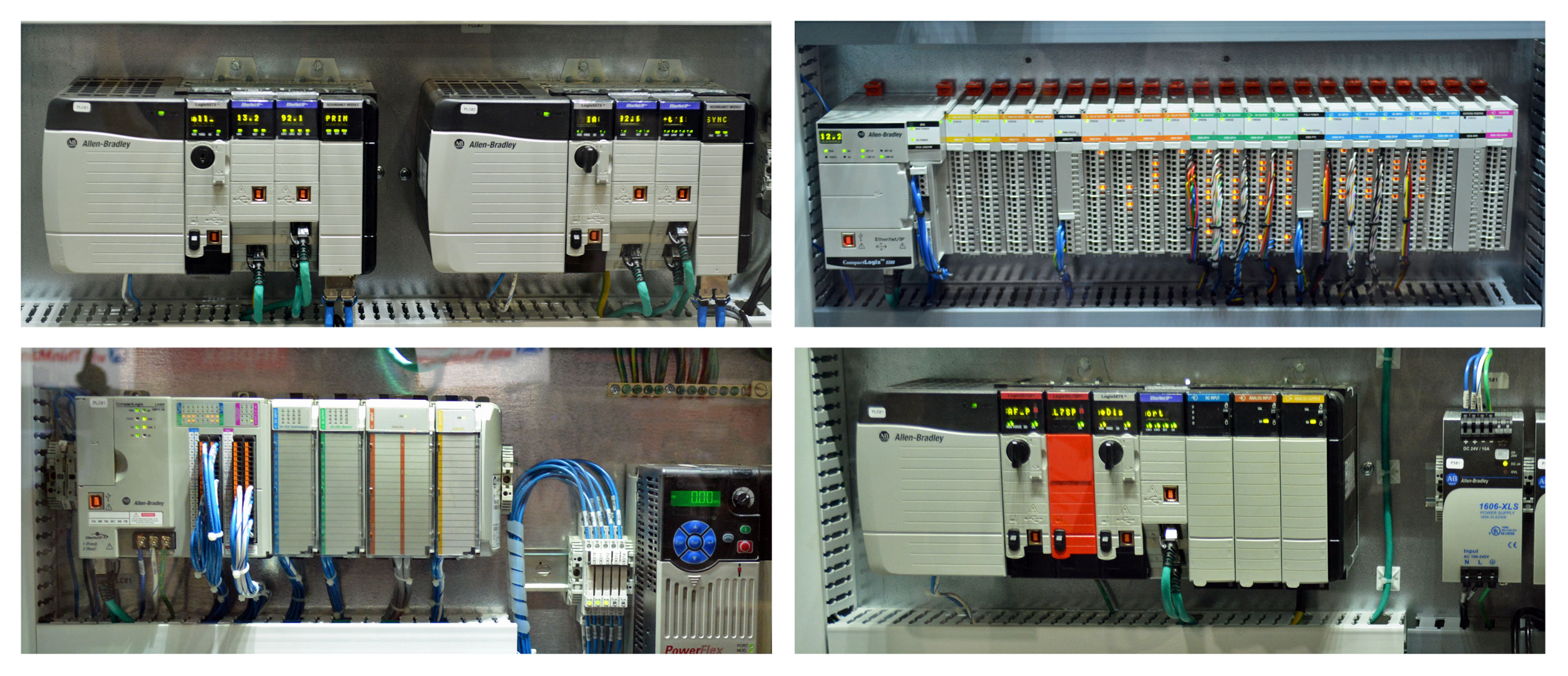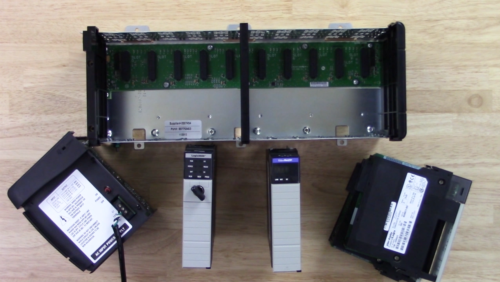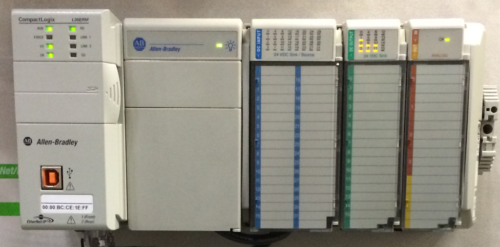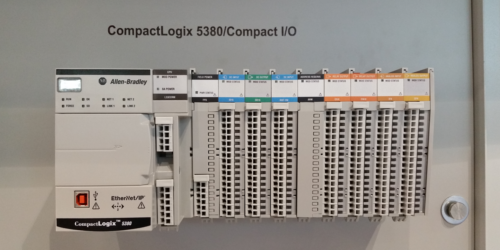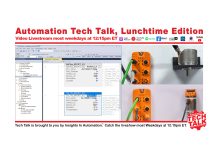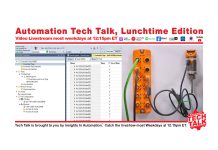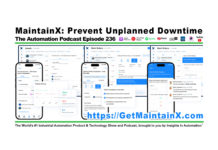
Most industrial automation vendors offer modern Programmable Controllers, but not all of them brand their products as PACs.
Take Siemens for instance: You’d be hard pressed to find a PAC feature their S7 line of controllers doesn’t support, and yet they still refer to them as PLCs.
That said, when Rockwell Automation released their next generation of programmable controllers they made the conscious decision to designate them as Programmable Automation Controllers, or PACs, to differentiate them from their previous lines of controllers.
Rockwell’s family of PACs is referred to as its “Logix” line of programmable controllers, and early on it consisted of five different lines:
– ControlLogix (1756)
– FlexLogix (1794)
– CompactLogix (1769)
– Softlogix (1789)
– DriveLogix (20D)
Note: The Allen-Bradley “MicroLogix” is not considered a PAC nor a member of Rockwell’s “Logix” family. It’s actually based on their SLC-500 line of PLCs, and in my opinion, it would have been less confusing if they had called it the Micro500 instead.
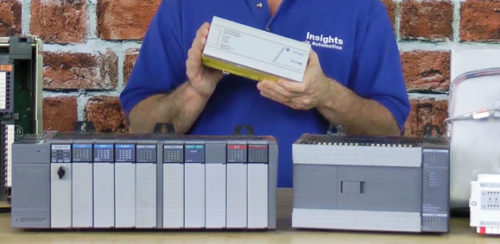 Since then, the ControlLogix and CompactLogix have become the dominate products in the line, with the FlexLogix going out of production back in 2009, and the SoftLogix and DriveLogix finding small niche markets a fraction of the size of the CompactLogix and ControlLogix.
Since then, the ControlLogix and CompactLogix have become the dominate products in the line, with the FlexLogix going out of production back in 2009, and the SoftLogix and DriveLogix finding small niche markets a fraction of the size of the CompactLogix and ControlLogix.
Update: The last version of SoftLogix 5800 released was version 23:
While both the CompactLogix and ControlLogix program with the same software, the ControlLogix supports more demanding applications with higher I/O counts, while the CompactLogix is most often used in smaller systems or on OEM equipment.
The ControlLogix
The ControlLogix was the original Logix platform and was first released back in 1999. It’s a modular system, and at a minimum consists of a Chassis, Power Supply, Controller, I/O modules and/or Communications modules.
Over the years the chassis and power supplies haven’t changed all that much, but several generations of controllers and network communication modules have been released.
The original controller released in 1999 was the 1756-L1, also known as the 5550 controller, and supported firmware versions 1 all the way up to
version 13.

The L1 was followed by the L55, or 5555, which is the only ControlLogix controller with the ability to have its memory expanded. In fact, you never want to order just a 1756-L55 as it will come without any memory at all!
 Following the L55 was the L6x, or 556x. It’s notable for the differences between Series A and B, with the Series B having an access door which opens in the opposite direction of all other controllers, as well as having greatly improved battery life due to a redesign of the memory and battery circuit.
Following the L55 was the L6x, or 556x. It’s notable for the differences between Series A and B, with the Series B having an access door which opens in the opposite direction of all other controllers, as well as having greatly improved battery life due to a redesign of the memory and battery circuit.
The L6x was also the first ControlLogix controller to support CompactFlash cards for use as non-volatile memory, with features similar to the EEPROM functionality of older A-B PLCs.
 In more recent times we’ve seen the release of the L7x, or 5570, which replaced the DB9 serial port found on all previous ControlLogix controllers with a USB port.
In more recent times we’ve seen the release of the L7x, or 5570, which replaced the DB9 serial port found on all previous ControlLogix controllers with a USB port.
The L7x also replaced the L6x’s CF card slot with an SD card slot, and in another first it actually comes with a 1GB Industrial SD card. The L7 also improved on all previous ControlLogix controller designs by replacing the need for a battery with the inclusion of a removable super capacitor charging module.
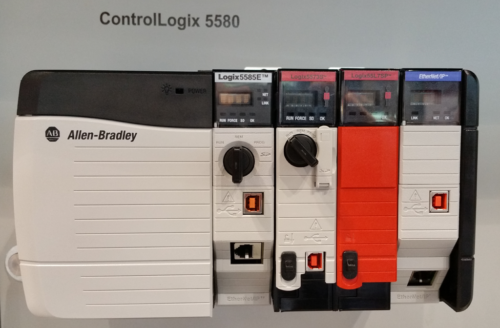
In December of 2015, Rockwell released its new L8x, or 5580 line of ControlLogix controllers.
Although similar to the L7 line in many ways (USB port, SD Card Slot, Super Cap,) the L8 also comes with (1) huge performance improvements (i.e. 5 to 20 times faster program scans) and (2) an embedded 1GB Ethernet port.
All of the above ControlLogix products have catalog numbers beginning with 1756, and are detailed in Rockwell’s ControlLogix Selection Guide.
The CompactLogix
The CompactLogix line comes in two styles: The all-in-one “packaged controllers,” and the more flexible, chassis-less “modular systems.”
Examples of the CompactLogix “packaged controller” include the initial release of this style, the L23 controller, as well as the more recent additions of the L1 and L2 controllers.
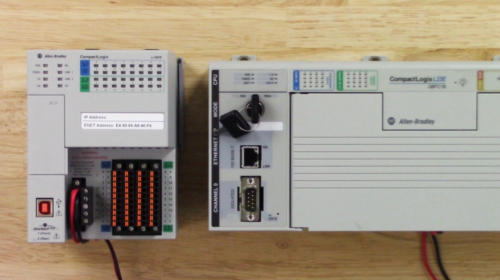
Examples of the “modular systems” include the popular line of L32x and L35x controllers, as well as the well-received L30ER, L33ER, and L36ER controllers.
While the packaged controllers are ready to go out of the box, all the L3xx controllers require a least Power Supply and Right End Cap to function, and most applications will also require several local 1769 Compact I/O.
It should also be noted that the L1, L2 and L3 controllers are also reference to as 5370 controllers, with the “70” indicating they share many of the improvements found in the ControlLogix 5570 line, including:
– Embedded USB port in place of legacy DB9
– SD card slot for use as nonvolatile memory
– 1GB Industrial SD memory card included
– New embedded super cap eliminates the need for a battery
The most recent entry in the CompactLogix family of controllers is the new 5380 line which leaves behind the 1769 architecture for the new 5069 line of I/O. According to Rockwell’s documentation, the key benefits of this I/O platform include a new high-speed backplane for faster I/O updates, as well as expanded support for up to 31 local I/O modules.
In addition to the above, 5380 controllers include a built-in Power Supply and Digital display but retain the SD Card Slot and USB Port found in the 5370 series.
To find out more about Rockwell’s line of CompactLogix controller, check out the CompactLogix Selection Guide.
Until next time, Peace ✌️
If you enjoyed this content, please give it a Like, and consider Sharing a link to it as that is the best way for us to grow our audience, which in turn allows us to produce more content 🙂
Shawn M Tierney
Technology Enthusiast & Content Creator
Support our work and gain access to hundreds members only articles and videos by becoming a member at The Automation Blog or on YouTube. You’ll also find all of my affordable PLC, HMI, and SCADA courses at TheAutomationSchool.com.
- Digital Twin Discussion with Arthur Alter of Smart Spatial (01/15/26) - January 15, 2026
- PRONETIQS: Measure, Monitor, and Maintain (P257) - January 14, 2026
- FactoryTalk Design Workbench First Look, CCW Comparison - December 19, 2025

Discover more from The Automation Blog
Subscribe to get the latest posts sent to your email.


